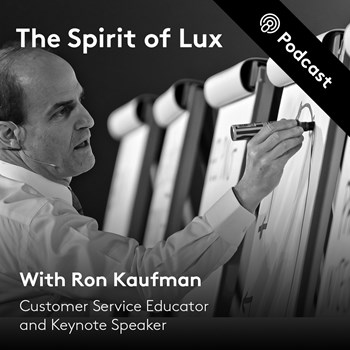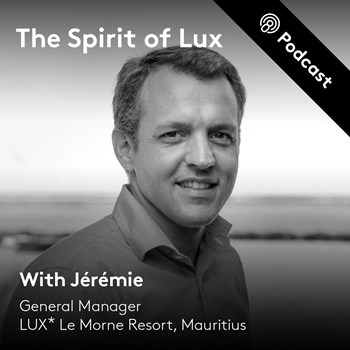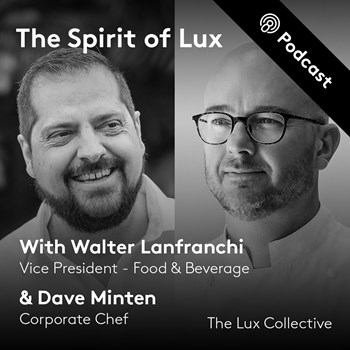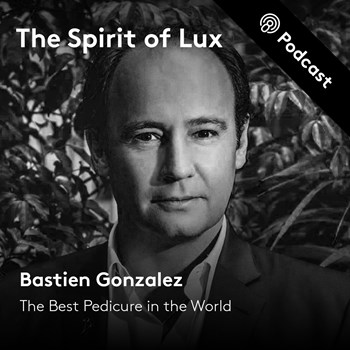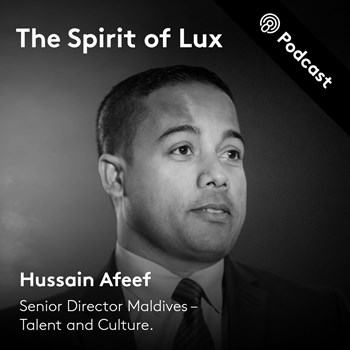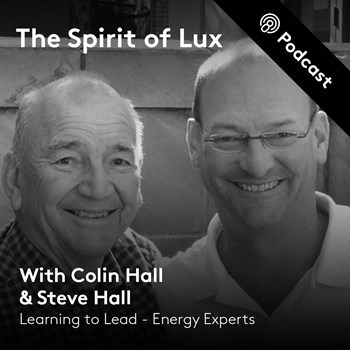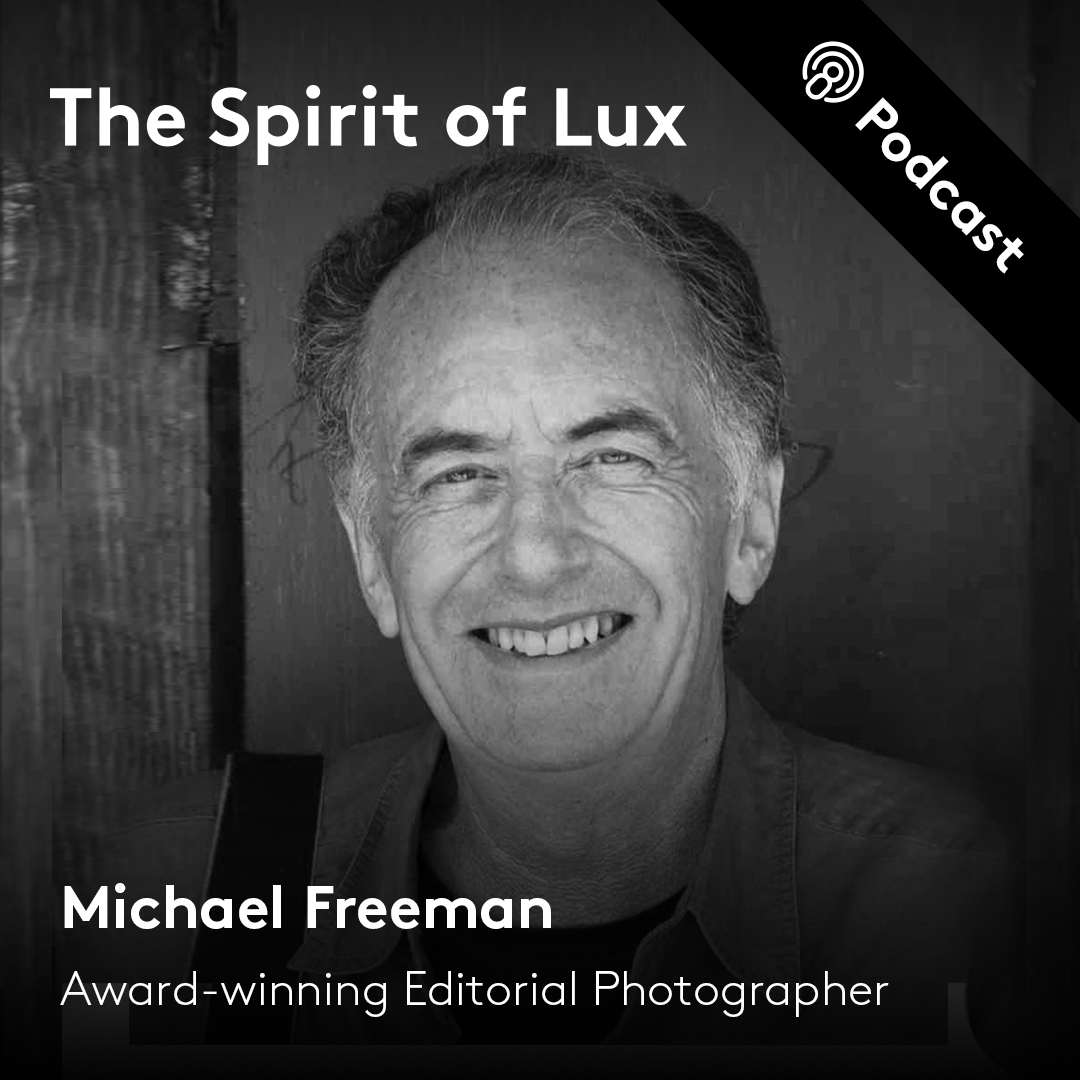 The invitees on episode 5 of our hospitality podcast is none other than Micheal Freeman, the editorial photographer famed for his unusual ability to capture the people and landscapes of the storied Tea Horse Road in Yunnan, China. More recently he published The Life of Tea, after spending three years documenting China, Japan, Sri Lanka, and India. That Michael is somewhat of a globetrotter comes to no surprise: his first stint took him to the Amazon. The photographer with a background in Anthropology from Oxford University discusses his travels and journey.
The invitees on episode 5 of our hospitality podcast is none other than Micheal Freeman, the editorial photographer famed for his unusual ability to capture the people and landscapes of the storied Tea Horse Road in Yunnan, China. More recently he published The Life of Tea, after spending three years documenting China, Japan, Sri Lanka, and India. That Michael is somewhat of a globetrotter comes to no surprise: his first stint took him to the Amazon. The photographer with a background in Anthropology from Oxford University discusses his travels and journey.
The LUX* Tea Horse Road through the lens of Michael Freeman
Paul Jones: I’m Paul Jones and you’re listening to the Spirit of Lux.
Michael Freeman: As a photographer, you're always looking at scenes in front of you, and the events that are likely to unfold, and anticipating.
Michael Freeman: The most interesting pictures are those where the expression has some, let me say - energy to it.
Michael Freeman: As a photographer, I'm at my happiest, which is doing a story, which is a trade I learnt with magazines, then you are actually building up a set of photographs, which together, do the job.
Michael Freeman: It's impossible not to be excited by Yunnan with its fantastic topography, and its cultural diversity, and pretty good weather. In fact, the name Yunnan means 'south of the clouds', because the weather happens to be pretty amenable.
Paul Jones: Welcome to another episode of the Spirit of Lux. Today I’m joined by one of the most widely published photographers, Michael Freeman. Michael’s work has been featured in some of the world’s most well-known magazines of publications throughout his illustrious career. In normal times, Michael spent half of his time travelling in Asia on photography assignments. There’s a lot to cover in this episode. We dive into a marvelous photographic journey with Michael along the historical Tea Horse trade route in Yunnan, in the south of China. From Pu’er to Dali, Lijiang, Shangri-La and all the way to Benzilan, LUX* Tea Horse Road China is a collection of retreats located in some of the world’s most off-grid destinations. Michael is also the co-author of the large former reportage book ‘The Life of Tea’ which was the result of a 3-year photographic exploration into the world’s finest tea-producers from the top artisanal growers in China, Japan, Sri Lanka and India, including tea plantations farmed by Buddhist monks, tea ware craftsmen as well as tea connoisseurs. Michael Freeman, so good to see you this morning, bright and early. Coming in from London, and I'm speaking to you from Singapore. Michael, we've known each other for some time, what I know about you is that you are one of the world's most famous photographers, and that is my favourite hobby. And I was very fortunate to go on a photography workshop with you, Michael. But I would like the listeners to hear from you how you became a photographer, and how you became world-famous.
Michael Freeman: Thank you, Paul. You really sound like my agent. I'm not sure about the world-famous. But anyway, how I became a photographer— I will keep this very short. I started in advertising. And the reason I started in advertising is when I left Oxford, where I studied geography and anthropology, I honestly didn't know what to do. And that time, there was a publication, which called the directory of opportunities for graduates, that advertised - because it was full employment, in which employers, including the state, advertise their wares. And the advertising agencies, of course, wrote the best copy. So, I've decided to go into advertising, and it was fun. I enjoyed it. I don't regret a minute after it. But after a few years, I was getting frustrated, because I was very much into photography. But in those days, you actually did as you were told, and photography was not considered to be, at least at school, a proper profession. So basically, I escaped from advertising, buying some second-hand cameras from a friend in the media department. And the agency gave me two and a half months sabbatical, totally unheard of these days, and I went up the Amazon. The story goes on from there, but we don't have the time. Anyway, it worked.
Paul Jones: Wonderful. And when I ran through my notes from our workshop, you taught me one thing about photography, you said, it's like painting with light. Could you shed some light on painting with light?
Michael Freeman: Well, light, it's a truism, of course. Photography needs light in order to work. But the quality of light and how it falls on scenes and subjects varies hugely. And in order to be a successful photographer, it's not the only quality, by the way, there are many other things apart from light, but you have to have some sensibility to the quality of light. And as you know, when we were together on part of the Tea Horse Road, in Yunnan, the light was beautiful. It's spectacular. It changed all the time. And as a Brit, I'm used to changing light, but you do remember don't you, the light and the clouds just sweeping across the mountain sides. And so that was, I think, a reasonable piece of advice, because you took it on board and took some very good pictures.
Paul Jones: Thank you very much. Yes, and I remember you were always waiting for that moment. And you could actually calculate when that moment would come and you were always right. And that became quite a hallmark of that trip because you were always chasing the light and you knew where it was and where it was coming from. And then you taught us about the golden hour. What is the golden hour, Michael?
Michael Freeman: The golden hour, and I'm a little hesitant actually to promote this too much because it's a crowd pleaser. And that's fine, but there are other more interesting kind of light, but golden hour is essentially when the sun is close to the horizon, and that was the late afternoon towards sunset and the early morning. It is not necessarily an hour— it can be two hours depends on the latitude, the season. So when the sun is low, first of all, the colour of the sunlight is more golden than white because it's passing through more atmosphere. But the interesting thing about a low sun is that it strikes subjects in a variety of interesting and unpredictable ways. And it's kind of easy to say that I was always right. But basically, I always claimed to be right, which isn't quite the same thing. Like a lot of people like poll predictors and magicians, I only show or talk about the successes. But experience tells you that things are going to happen — the light is going to fall in a certain way. But there are still surprises. It's not possible to know everything.
Paul Jones: Yeah. And another thing you taught us on that trip was about focus. The obvious one is to look into the eyes of people — focus on the eyes. And that's an obvious one. But what you said is, "Look for the expression and watch the expression on people's faces." And if you can capture that through the eyes and then the whole face, it just makes such a difference to the output of the actual shot. And I really remember after your workshop, I looked at things very differently, and it's that sort of photographer’s mindset that opens up a different world. Would you care to comment on that and educate our listeners, how to develop that photographer's eye?
Michael Freeman: Well, as a photographer, you're always looking at scenes in front of you, and the events that are likely to unfold, and anticipating. And of course, what you're anticipating is, the aim of that, is to capture a moment that pleases you. There is no perfect moment. There are moments that most people will say that are good and there are moments that for each particular person make the difference. Now, if you're photographing people and they are the main focus of attention, then when you have time, and you usually do, even if it's only seconds, it could be many seconds, then you don't just take the picture. As soon as you think about it, you take the picture when the action in front of the camera is interesting, it's dynamic. And when it comes to people, there are three things and it really depends on how close you are to them. If you're at a distance, it's the posture. In other words, the way people stand, move, the shape of their body— some are more interesting, some are more elegant than others. Then there's gesture, which normally is focused on the hands and the arms, but also other parts of the body. Think of the shrug of the shoulder or a head being cocked, to listen or in query. But the most expressive part of human being is, of course, the face. And the most interesting pictures are those where the expression has some, let me say, energy to it. There's a difference, I think we could all see in between what people got a blank expression and one that is animated. So, expression is everything, particularly with the kind of photography we were doing, which is not in the studio, where you can talk to manipulate the person. This is on-the-fly. I don't know if everybody knows of Henri Cartier Bresson, the greatest photographer, the founder of Magnum agency, and he produced a book which became a very well-known phrase, a cliché that is called 'the decisive moment'. There is a decisive moment and that's the one to capture. But actually, that was his American publisher. The way he spoke about his photography was à la sauvette, which is, doesn't have a complete English translation, but it means 'on the fly', just reacting quickly, catching on the run. And when you're dealing with uncontrollable life in front of you, which is, frankly the most interesting kind of photography, that's what you have to be aware of. So, you anticipate, you pay attention to the movement — the movements across a person's face included and you catch it.
Paul Jones: Exactly. Now, you and I are both from the UK, and yet we met in Asia. And when we met, the first thing that struck me was, you are passionate about Asia. So, please talk to us about your attraction to Asia and how did you first discover Asia?
Michael Freeman: Yes. I mean, the fundamental answer, I really don't know what it is, except that having escaped advertising into photography by going up the Amazon, I was fully committed to, let's say, exotic travel. And in those days, there was no long-haul tourism. So, it was quite adventurous. And I've always, to be honest, in an adolescent way, I've never lost it, the love of adventure. And Asia began for me with one of my first really supportive clients, which is Time Life. And the time they were doing a series of books, and these were called Peoples of the Wild, which is not a politically correct title these days, but it was about remote, small communities around the world. And I was assigned to a hill dwelling minority in the north, which lives in the north of Thailand, north of Burma, and the south of China in southwest of Yunnan called Akha. Now at the time, in the late 70s, there was no access to anywhere else except Northern Thailand. I had a three-month assignment, which was unheard of really. I mean, assignments tended to be longer in those days for magazines, and some book publishers but this was a tremendous opportunity. I lived in the village and this caught my imagination and attention because I had already studied anthropology as part of my geography masters at Oxford. So, I really fell in love with this whole exotic area of Southeast Asia. Then after that, I kept returning to Southeast Asia, unfortunately, because there was an increasing demand for pictures from places like Thailand, Cambodia, Indonesia. There was assignment work, which is, of course, what photographers do, what I do — documentary reportage - need. And so, in fact, I've began in Thailand and spread out from there. So around about 15 years ago, I reached China. It's not the first time I was in China, I was there in in 1985 for a week covering the return of a species of deer that had become extinct in China, and there was still a herd in England. Basically, it began like that and it continued, and I never lost my fascination.
Paul Jones: When people are living outside China think of China, their thoughts go to Beijing and the Great Wall or Shanghai, but when you, Michael Freeman, you think of China, you think of Yunnan. I mean, Yunnan rolls off your tongue and your eyes glaze over because you have this powerful attraction for Yunnan, and also Sichuan and Tibet. How did that happen?
Michael Freeman: I mean, as you know, it's impossible not to be excited by Yunnan with its fantastic topography, its cultural diversity, and pretty good weather. In fact, the name Yunnan means 'south of the clouds', because the weather happens to be pretty amenable. The reason why my interest in China entered, rather the back route, was down to a publisher and old friend of mine, Marissa Chakra, who has a publishing company in Bangkok. We worked together for many years, I've done many books on Thai culture, then Angkor in Cambodia. We had lunch one day, and she said, "Well, we've done all this. And actually, I just like to move out in publishing terms from Southeast Asia. Can you find me something in southern China that some way relates, we could treat as an extension of our progression of interest?" So I looked, we researched and came across the Tea Horse Road. And this was one of the longest trade routes in the ancient world, about 3,000 kilometers of trails across amazing range of countries, high mountains, lush valleys, deep gorges. And in China, this is very well-known, the Tea Horse Road, because from the 7th century, the Tang Dynasty, the Tibetans discovered tea. It's a slightly complex story. But basically, tea comes from this border area of Southwest China, Northern Burma, Northwest Laos, and Assam, Northeast India. And the Tibetans who were making incursions at the time of the 7th century, and this was before Yunnan was part of China discovered it and it was very important for them because the other part of the story is that the Tibetans and the Tibetan plateau is high, up to 5,000 meters, and there's something called high oxidative stress. So, living in the Tibetan Plateau or the Altiplano in South America isn't very good for the human body, and, of course, lack of fresh vegetables because of the climatic conditions. But tea has such a complex wealth of various chemicals, amino acids, tannin that actually help high oxygen stress. And the Tibetans fell in love with it to the point ... I mean, still today, they drink more tea by quantity than anyone else in the world per capita. So anyway, there was this trail. It was known to the Chinese, very well-known, everyone learns about it in school. And in the West, hardly anyone. Now for a photographer about to embark on large project like this, which always take at least two years, and a lot of commitment, we ended up 20 weeks of shooting, when you're going to commit to a project for this amount of time, you want it to have promise for your own creative work. And this is basically from a photographer's point of view, virgin territory. There wasn't already a book on the Tea Horse Road, there wasn't already a National Geographic article on the Tea Horse Road. So, on top of that, it's a perfect linear, narrative story. You start in the south and go up to Tibet. And it had everything, including amazing cultural diversity.
Paul Jones: And great food as well, as we discovered.
Michael Freeman: Absolutely, It's interesting that China, if not the world's greatest cuisine, it's certainly vies with the French and France is smaller, because there's so many provinces with just wonderful food. Yunnan is rather different. It’s kind of, should we say, it's not so complex. It's more like northern Italian food to French, but the ingredients are fantastic and it's very popular with all visitors. You've noticed that. One of the great things in Lijiang, which is where you have wonderful property, is to go to the wet market in the morning. This is a huge market. It’s a real one. It's not created for tourists or anything like that. Just to wander around and poke around and even eat at the stalls there is a fantastic experience for anyone interested in food, as we are.
Paul Jones: Absolutely. And Michael, the book that you created, this gigantic coffee table term, it's just extraordinary. Some of the photography, not some, all of the photography in that book is just mind blowing. Tell us about your favourite shots in that book.
Michael Freeman: Well, it's always hard to find favourites. But when you're doing a story and basically that's when, as a photographer, I'm at my happiest, which is doing a story, which is the trade I learnt with magazines, then you are actually building up a set of photographs, which together, do the job. In other words, it's not just one picture being great - that picture being good in a different way - they have to work together. So, the whole thing becomes a creative unit in itself. But I suppose that the photographs that I have the most affection for are the ones which were the occasion itself was memorable. That's quite normal. But of course, memorable occasions don't necessarily make memorable photographs. But in particular, we were driving up one gorge, where in the old days with the Tea Horse Road, a lot of these rivers because of the real, the genuine ruggedness of the landscape, where you have massive deep, gorgeous, steep cliffs, and fast running rivers, like the Mekong and the Yangtse. There's no way to get a boat across. So getting horses across — these are small horses — ponies and mules, getting them across a gorge meant using what's now called a zip line, but in those days, they didn't call it that— basically a rope or the two ropes crossing in opposite directions. One end higher than the other and a pulley. You put the horse on a pulley and there was a guide rope and put it across this foaming river. Well, you would think that that's the thing of the past, but we were driving and came across exactly this. There was a community, Lisu, an ethnic minority. And they still use this, there were steel cables. And it was remarkable. I mean, depending on the angle of the cable, the speeds could get up to about 30 miles an hour, you would not want to fall, right? I photographed two young children, a boy and his younger sister, going back from school across the gorge. And the way you did it, you have a pulley on the cable that has a hook. And a thick twist of rope that you put onto the hook and the other part around your bottom, and off you go. I thought that's remarkably dangerous. But then when I saw these two kids, and they were very sweet, I thought, "Don't be a wimp. They can do it, you should." So I did. And I went with a co-pilot, a local man who knew how to do it. So we were opposite each other hanging off this thing, and what a trip, I mean, really. But the problem was getting a good picture. So I held my camera in my right hand as usual, held on to the pulley as you would with the left, took the pictures, got to the other side, looked at them— this is what of course you could do digitally, and it was fine, except I could see my own hand with white knuckles. Well, that's not very good. Anyway, so we went back and did it again. This time, I did what any sensible person would do. I use both hands and held them behind my head. Now, at this point, my co-pilot was quite alarmed it seemed, because I was dangling by my bottom as we were going. So, the worst thing was that he was looking at me. So I said, "No, no, no, no, no, don't look at me." So finally, he looked away and I took the picture, and it was fine. And we got to the other side, and I sort of rethought the position, and I thought, well, maybe he was right. That picture is in the book.
Paul Jones: Oh, Michael. So as you know, I'm a hotelier and we've started this wonderful group of hotels, boutique hotels, we call it the LUX* Tea Horse Road. And you have been to the one in Lijiang and the one in Benzilan, and we’ll soon be opening in Shangri La. But I think when we were on our photography trip, we went to the most amazing spot, that when you arrive, your jaw drops, because you have this ravine, and the houses are clinging to the side of the ravine, and it was just incredible. I think you called it Bao Shan, I think they also call it the Stone Town. But I would never, if you'd have told me then, do you know one day you will have a hotel here? I would laugh.
Michael Freeman: I know. It’s remarkable.
Paul Jones: But we do. It's a small one, but how incredible was that place because we had to leave the car. And then we had to walk a long way, and then we walked up the hill, and that was magic. That walk up that hill ,through the village gate with the person sitting there smoking the pipe, was just heaven. All of us, we were running around taking so many pictures, and I just loved it.
Michael Freeman: Remarkable, remarkable.
Paul Jones: But you've been there before, of course.
Michael Freeman: Yes, I've been there before. Quite a remarkable settlement. Because as you say it is built on a very steep hillside. And then one part of it, it's actually an old volcanic plug. The center of an old volcano, it is quite small. So it's like a Citadel sticking up. And the people there, Naxi, which is one of the ethnic groups. As you and I were talking a little while ago about Yunnan is special, not least for the fact, that it has 25 ethnic groups within the province, and that's half of those in China. And the group here are called Naxi. But the interesting thing is that, apart from that, there was a lady from Sichuan, who had a small guesthouse and she married a Naxi man, so she could translate. But the whole village did not speak Mandarin. And, in fact, I was told that Naxi dialect that they speak is not even the same as the one in Lijiang, which is about four and a half hours’ drive away.
Paul Jones: Incredible. But this was, I think, for me, probably the peak of the excitement of that journey. And I think this journey that we've created along the LUX* Tea Horse Road is really very, very interesting for people to follow from the different scenery, which is so dramatic, not just from a photography standpoint, but just any person who sees what you and I was seeing as we traveled along the Tea Horse Road. It's just mind blowing. I defy anybody not to be impressed and blown away by this wonderful scenery that we have. And of course, the added advantage of being able to taste the Pu’er tea because all these places, they very proudly have wonderful tea shops and tea houses, they're pressing the tea there, they're showing you how to make the tea, and this is fantastic. Then you get into the raw Pu’er tea or the cooked Pu’er tea, and all the differences of that. And it's really very, very interesting. So Michael, how would you describe the Tea Horse Road as a journey for, shall we say, a Westerner who wants to come to visit China? Would that be something that you would recommend?
Michael Freeman: Oh, absolutely. What I mean, what excites me now Paul, is that I have not seen quite a number of the new boutique hotels that you built there or converted from traditional structures. And a trade route like the Tea Horse Road was, of course, conducted by horse caravans and they will be carrying the tea up from south to north, and doing it in stages. So, they didn't go all the way. Some caravans would return with other products because they weren't going to go back home empty. But at each stage along the way, you had caravanserai, stage pulse, the American equivalent, and each would be a day's journey along the way, and some of them would be bigger because there'd be a big center like Lijiang. So, what you now have is the modern and frankly luxurious and comfortable equivalent of these ancient staging posts— the caravanserai. So you're following the actual journey, but doing it without what I'm sure is the true discomfort of having to lead 100 ornery mules and ponies along muddy tracks. So, that's the excitement for me. Not only is it visually spectacular and culturally interesting, but it is a journey, and it's a journey with a true, natural history. And to be able to follow that seems to me, a very exciting project for anyone.
Paul Jones: So Michael, what's in store for you in the future? What have you been doing lately? And what is capturing your imagination, apart from everything that we've discussed today?
Michael Freeman: What's capturing my imagination is a plane ticket in an airport. I'm not sure I remember what they look like anymore. So, my horizons have been limited. My life for 40 years, turned out to be seven months on the road on long trips, like five weeks, to places like Yunnan and the Amazon. And now obviously, for the last year and a half, it's been Hyde Park Corner, which is just a few stone’s throw down the road to do my morning walk, takes me an hour to get there. So obviously, that's what's in the imagination. But I've been actually very busy. First of all, and before the pandemic, the Tea Horse Road inspired not just an interest in China but in tea. I'm from the north of England, of course, so we drank tea. Well, we thought we knew what we were doing. My uncle, he was an engine driver on the London and Northeast Railway, which meant steam engines. And I remember he used to drink, he used to have a pint mug, and this is what he did. He was from Yorkshire, but we both had – both cultures from the North – and we both had a large mug and a very, very strong tea with milk and sugar. And as we like to say, it's strong enough to stand a teaspoon up in it. We're not trying to explain this on my talks because I do speak around China. I met with frank disbelief. Why would anyone want to do that to tea? But anyway, I discovered that far from knowing everything about tea, I knew nothing. It's a wonderful world. And I then went on to do the other teas, because the Pu’er tea as it's called, named after one of the locations of one of your properties, Pu’er - it's a very special kind of tea. It post- ferments, in other words, the fixing that you need to do usually by firing in a wok or heated plate to stop the fermentation, doesn't work completely with this large leaf tea, and it continues to ferment. And in the old days, of course, it can ferment on the back of ponies, in the rain, horse, sweat, stuff like that. So it's very interesting tea, but it's only one of six. There's the black tea — that we in the West mainly consumed — there's green tea in the spring, there's white tea, there's yellow tea, there's oolong tea with its very complex processes. So, I got very involved in this. And I did a book called <The Life of Tea>. That actually - it's a bit boastful, but in 2019, that received the Fortnum & Mason Award for Drink Book of the Year. And it was the first time that a non-alcoholic book done so. So, that was one thing. But drink and food are an interest of mine and a professional interest. Most photographers do either the sort of photography I've been talking about, and that's what I mainly do, which is out there in the real world or studio work, which is completely different. But for me, I do both, which may sound strange. To me, it makes complete sense. I call it two-handed shooting, because each balances and contrasts with the other. So one of my specialties here is food and drink photography, which is a very interesting form of studio and still life. It demands a lot of care and a great love of food. I mean, you have to know as much as a chef about the ingredients and how it should look, and it's very sensuous. Anyway, so that's what I've been doing.
Paul Jones: And then of course, you helped us with the SALT cookbook, when we opened the SALT of Palmar. And that book was incredible. You did the whole thing for us, and we're really very, very grateful. I'm very happy that the SALT cookbook came out about a year ago. In fact, not long before the pandemic.
Michael Freeman: That was a lot of fun to do. But I was working with real professionals. I mean, this of course, is the key. During that kind of photography, you're not on your own. It's a team effort. And the whole culinary team, headed by Dave Minten, are fantastic, real professionals.
Paul Jones: And I hear that Chef Dave; he wants you back in Mauritius to capture the food at the new LUX* Grand Baie hotel. And I hear that you're being tempted back.
Michael Freeman: Indeed, we're planning that trip now. No temptation was needed.
Paul Jones: Well, thank you very much, Michael. Any last thoughts before we leave you?
Michael Freeman: Any last thoughts on the Tea Horse Road. I must say it's become a sort of romance to this place, this journey. And I would really, really encourage anyone to go. As a slight inducement, we're now planning and we hope it would start in the spring, this depends of course on the policies and quarantine policies, but we're hoping that in the spring, we'll start with this. I'll be leading a photo workshop along the Tea Horse Road from one property to another. And this is going to be very exciting because I get to go back and visit my favourite places and the new places you've just been opening. But also, I will be able to show people my favourite parts, views, and it should be a lot of fun. So, we're going to try and keep it sort of small. I don't think we should have more than six or eight people at a time. So, I could just stay there and add to one after another. But anyway, that's actually what apart from Mauritius, which that shoot is coming up very soon. But that's what I'm most looking forward to making happen.
Paul Jones: Wonderful. I'll be so happy to join you on that trip.
Michael Freeman: Please, yes, indeed
Paul Jones: Michael Freeman, thank you so much. You've been wonderful. We're so grateful. Thank you.
Michael Freeman: Great pleasure. great pleasure. Thank you.
Paul Jones: Thank you for listening to the Spirit of Lux with me, Paul Jones. If you like what you heard, don’t forget to subscribe to our channel on Apple Podcasts, Spotify or wherever you listen.
